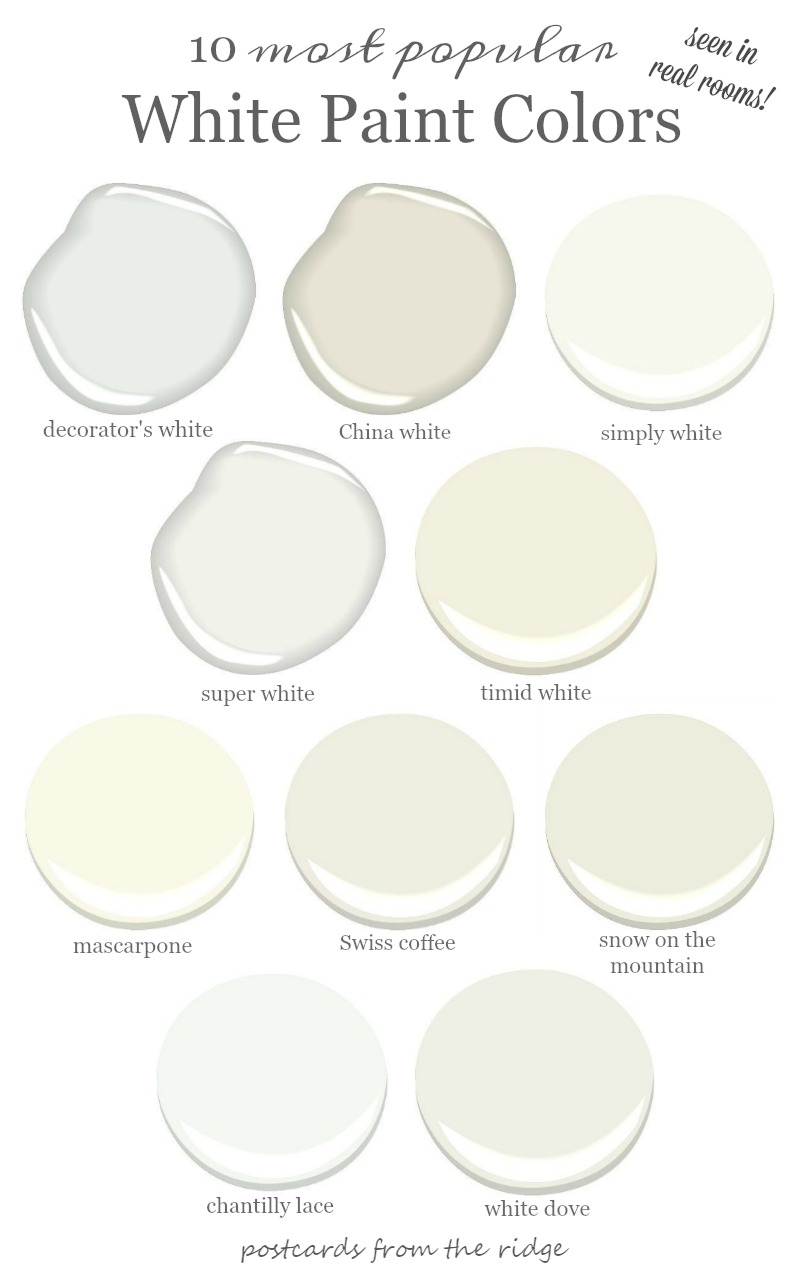Decoding Benjamin Moore's Hottest Hues

Ever walked into a room and felt instantly captivated by its color? That's the power of a well-chosen paint. Benjamin Moore, a titan in the paint industry, offers a vast spectrum of hues, but some shades rise above the rest, becoming coveted classics. What are these top Benjamin Moore colors, and what makes them so popular?
The quest for the perfect paint color can feel like navigating a labyrinth. Benjamin Moore's expansive palette offers a dizzying array of choices. From calming neutrals to vibrant jewel tones, the options are seemingly endless. So, how do you narrow down the field and find the color that best suits your space and style? Understanding the current trends and enduring favorites is a good place to start.
One key to understanding Benjamin Moore's most favored colors is recognizing the cultural zeitgeist. Trends in interior design, fashion, and even technology influence our color preferences. What's "in" today might be "out" tomorrow, but certain Benjamin Moore shades seem to transcend fleeting trends, maintaining their popularity over time. These colors often strike a balance between timeless elegance and contemporary appeal.
Consider, for example, the enduring popularity of white. Benjamin Moore offers a multitude of whites, each with its own subtle nuances. Simply White, Chantilly Lace, and Decorator's White are frequently cited as top choices. Their versatility and ability to create a sense of airiness and light make them perennial favorites. But even within this seemingly simple category, the subtle undertones – from cool blue to warm yellow – can dramatically impact a room's atmosphere.
Beyond whites, softer neutrals like grays and beiges also hold prominent positions in the Benjamin Moore popularity contest. Colors like Revere Pewter and Edgecomb Gray have gained cult followings for their ability to create calming, sophisticated spaces. These adaptable shades serve as excellent backdrops for a variety of decorating styles, allowing furniture and accessories to take center stage.
The history of Benjamin Moore's most popular colors is often tied to cultural shifts and design movements. While specific origin stories might be elusive, it's clear that the enduring popularity of certain hues stems from their ability to evoke specific emotions and create desired atmospheres. For instance, the rise of minimalist aesthetics has contributed to the popularity of clean, uncluttered whites and soft grays.
One benefit of choosing a popular Benjamin Moore color is the wealth of inspiration and guidance readily available online. Countless blogs, social media posts, and design websites showcase these colors in real-world settings, offering valuable insights into how they look in different lighting conditions and with various decorating styles. This can be incredibly helpful for visualizing how a particular shade will translate into your own space.
Another advantage is the ease of finding complementary colors. Since popular Benjamin Moore colors are widely used, it's relatively easy to find coordinating fabrics, rugs, and accessories. This simplifies the decorating process and ensures a cohesive, well-put-together look.
Finally, opting for a tried-and-true Benjamin Moore favorite can add value to your home. These colors are often associated with quality and sophistication, appealing to a broad range of potential buyers. This can be a significant advantage if you plan to sell your home in the future.
Advantages and Disadvantages of Popular Benjamin Moore Colors
| Advantages | Disadvantages |
|---|---|
| Widely available | Can feel overused or trendy |
| Lots of online inspiration | May not reflect personal style |
| Easy to coordinate with decor | Might require adjustments for specific lighting |
Frequently Asked Questions
What are the most popular Benjamin Moore whites? Popular choices include Simply White, Chantilly Lace, and Decorator's White.
What are some popular Benjamin Moore grays? Revere Pewter and Edgecomb Gray are frequently cited favorites.
Are popular colors always the best choice? Not necessarily. Personal preference and the specific characteristics of your space should guide your decision.
Where can I find inspiration for using Benjamin Moore colors? Online resources like blogs, Pinterest, and design websites are excellent sources of inspiration.
How can I test Benjamin Moore colors in my home? Paint samples are essential for seeing how a color truly looks in your space.
Are popular Benjamin Moore colors more expensive? Generally, no. The price is typically consistent across the brand's color offerings.
Can I mix Benjamin Moore colors? Yes, Benjamin Moore retailers can create custom color blends.
What is the best Benjamin Moore color for small rooms? Lighter colors, like whites and pale grays, can help make small rooms feel larger.
One tip for choosing a Benjamin Moore color is to consider the lighting in your room. Natural light can significantly impact how a color appears. Test paint samples in different areas of the room and at different times of day to get a true sense of how the color will look.
In conclusion, the world of Benjamin Moore's most popular colors is a fascinating blend of enduring classics and evolving trends. While understanding current favorites can provide valuable starting points, ultimately, the best color for your space is the one that speaks to your personal style and enhances the atmosphere you want to create. Remember to test samples, consider the lighting, and trust your instincts. By carefully considering your options and taking advantage of the wealth of resources available, you can unlock the transformative power of color and create a space that truly feels like home. Don't be afraid to experiment and explore the possibilities. The perfect Benjamin Moore color is out there waiting to be discovered. Start your color journey today and transform your space with the magic of paint!
Unlock coastal calm exploring benjamin moores rocky coast
Decoding the opm gs pay scale your federal salary guide
Finding behr paint your ultimate guide













